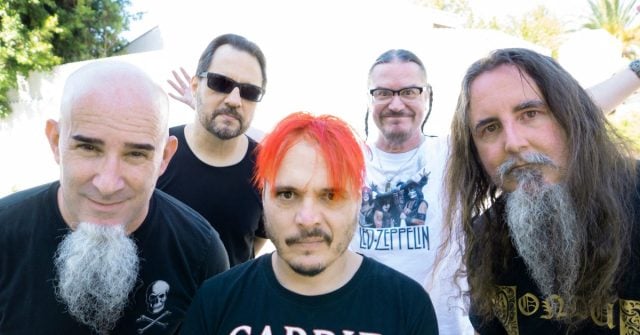Before deciding to kill herself, a young woman in Spain had long denounced on social networks «the degrading and horrible treatment» that she suffered from a mental health system that she considered inefficient. She left messages scheduled on Twitter to be published a week after her death in which she explained the reasons for her decision and that have generated controversy and a profound impact.
«It has not been impulsive, I have not consciously warned anyone. I have been killed by the dysfunctional family, the social services, the juvenile prosecutor and, above all, the degrading and horrible treatment in mental health».
«I just want to rest, not ‘just stop suffering’ «,»she wrote in one of the scheduled tweets, reviewed by journalist Marta Miera in an RT report.
The young woman explained in her account that she was going through «a very bad streak of problems not only untreated, but poorly treated by incompetent professionals».
She even published a thread of the «medical negligence» that she had to face with an untreated bipolar disorder and that the doctors diagnosed as anxiety. «By not treating bipolar disorder, I ended up with psychosis», she said.
In another message, which she titled «How to completely burn a person to the point that she simply wants to die and refuses to speak», she published a self-help exercise and in the section dedicated to the family she pointed out that she suffered physical, psychological, sexual abuse and abandonment.
«I am a lonely person because of the context, by force but at this moment I would like to be anything but alone», she pointed out.
10 suicides a day in Spain
The news has shocked social networks, where many users, and also politicians, have lamented her death and criticized the absence of public plans to address mental health.
“I just saw the latest tweet from a person who apparently has committed suicide explaining her reasons. 10 people like her kill themselves every day. Read it again: 10 a day. The National Plan for the Prevention of Suicide in Spain cannot wait any longer“, lamented the spokesperson for Más País, Íñigo Errejón.
It is not the first time that the deputy addresses this issue. In March, he spoke before the Congress of Deputies about the deficiencies of the public health system in terms of psychological care for the population and the problem of suicides in Spain, when a right-wing deputy yelled at him “Go to the doctor!», as an insult.
According to the latest data collected by the National Institute of Statistics (INE), since 2018, in Spain, there have been 7.5 suicides per 100,000 inhabitants per year, which means more than 3,500 deaths, around 10 suicides per day.
Men are the majority and their rate reaches 11.4 per 100,000 inhabitants, compared to the lower incidence in women (3.8). In addition, the rate rises alarmingly with age and, if at 45 years of age it already stands at 10.3, at 80 years of age it exceeds 16; reaching, in the case of men between 90 and 94 years of age, the scandalous figure of 44 suicides per 100,000 inhabitants.
Six psychologists compared to 38 on average in the EU
The public health system in Spain has around six psychologists for every 100,000 inhabitants – according to 2018 data collected by the Ombudsman – and about 10 psychiatrists for the same amount of population.
The demand for these professionals has also increased in the last year. According to the Center for Sociological Research (CIS), within the framework of the coronavirus pandemic, six out of ten Spaniards have symptoms of depression or anxiety, while 70% of young people say they are hopeless.
On the other hand, the figures are very far from the average of the European Union (EU), where in 2017 there were 38 psychologists per 100,000 inhabitants, according to the World Health Organization report ‘Mental Health Atlas’ with data of 2017. In fact, in some European countries that are considered benchmarks, such as Finland, the rate is 133 mental health professionals (between both specialties) for the same ratio.
Spain without resources?
The psychologist Jesús Arroyo, who was in daily contact with Ángela, says that the same afternoon of her suicide, the young woman told him that she had gone to see a professional. «She left there happy and grateful but the answer was that ‘there were no resources’. The psychologist could only see her every three months», he emphasized.
In her blog, Angela wrote: «The renunciation of life makes sense as a protest against a system that alternates rejection and abandonment with harmful treatment, even more so when the answer to all the damage is to give the system another chance until you find yourself with a ‘golden’ professional who, due to knowledge, resources and time, manages to give you a dignified attention; a needle in a haystack or a stroke of luck».
The young woman said goodbye in writing to all the people who helped her, many of them through the networks. And it has been on the internet where the displays of affection towards her have multiplied with the ‘hashtag’ #TeEscucho(#IListenToYou) and that has generated a wave of solidarity with many Internet users, some psychologists, offering their accounts to speak with those who need it.
«This person has committed suicide in large part due to lack of resources at the mental health level. This makes my hair stand on end, this is something very serious, I only ask that if you are in a similar situation, please write to me, #TeEscucho. Each of us can make a difference», says a netizen.
«#TeEscucho if you need a safe space, if you need to talk and vent. This account is open for you”, comments another. And another maintains: «The #TeEscucho initiative began in Spain as a result of a sad loss to raise awareness about the importance of accompaniment and the support network in the face of the problem of suicide. Let us accompany each other, we need each other».
In one of her scheduled tweets, Angela sent a message: «Do not stop fighting for healthcare accessible to all, especially at the level of psychological care. It is so needed. And, especially, take good care of yourselves. It has been a pleasure».











